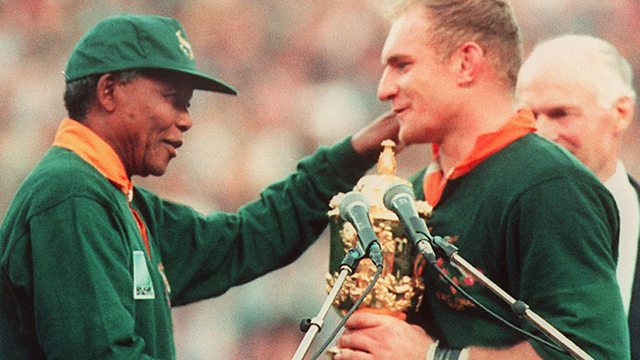South Africa at 18: Does 'black and white' still matter in the Rainbow Nation?
Audrey Brown and Karen Allen ask whether race relations in South Africa have improved over the last 18 years.
Earlier this year, on 27 April, the country marked the 18th anniversary of its first multiracial elections heralding the birth of Nelson Mandela's "Rainbow Nation".
This 18th year of freedom also marks the coming of age of the first South African citizens to be born after the end of the racist apartheid regime. These teenagers are now able to vote for the first time.
South Africa is one of the most diverse countries in the world, racially as well as ethnically. It is also one of the most unequal societies in the world. Its inequalities correlate with race and concern is growing that this socio-economic imbalance or divide is increasingly threatening the country's stability.
According to the South African Institute of Race Relations, per capita personal income among white South Africans is nearly eight times higher than that of the country's black citizens. Statistics show that 29% of black South Africans are unemployed compared with 5.9% of their white compatriots.
President Jacob Zuma has called for greater state involvement in mining and land ownership to address inequalities inherited from apartheid - which he said pose a "grave threat" to Africa's biggest economy.
Nobel Peace Laureate and former South African president, FW de Klerk, has warned about new racism in South Africa. He said the governing ANC's rhetoric was increasingly becoming hostile to white South Africans and that the ANC is using racism as a "smokescreen" to hide its failures.
Earlier this month, South Africans were shocked when more than 30 striking mine workers were shot dead by police during protests over wages. The incident highlighted the growing frustration by South Africa's workers with poverty, unemployment and inequality.
大象传媒 Africa Debate presenters Audrey Brown and Karen Allen will be talking to the panel and an invited audience including politicians, government representatives, policy makers, trade unionists, business representatives, academics, students and media executives.
(Image: Springbok captain Francois Pienaar (R) receives the Rugby World Cup from South African President Nelson Mandela at Ellis Park in Johannesburg 24 June 1995. South Africa won the final against New Zealand 15-12 after extra-time. Credit: PHILIP LITTLETON/AFP/Getty Images)
Last on
Broadcasts
- Fri 31 Aug 2012 19:05GMT大象传媒 World Service Online
- Sun 2 Sep 2012 13:05GMT大象传媒 World Service Online
The Global News Podcast
The day's top news stories - find it here or subscribe wherever you find your podcasts
The Africa Today Podcast
The day's news in Africa - find it here or subscribe wherever you find your podcasts
Podcast
-
![]()
大象传媒 Africa Debate
If it matters to Africa, we shall debate it in Africa


